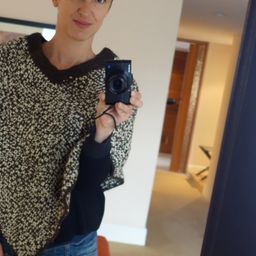09.45 Experiencing a Maori Touring Exhibition in Paris and Québec City: Heritage as Window on the Other and Mirror on Oneself
Mon statut pour la session
The history of the Maoris' cultural appropriation of museums has been documented, but the effects of the reception of Maori touring exhibitions are still hypothesis. This comparative study is part of “the first in depth empirical evidence of exactly what touring exhibitions do change, and how.” It will produce grounded elements and reflexive insights into one of the two touring exhibitions examined in the session: “E Tū Ake. Standing strong.” This paper will focus on the effects of the Maori touring exhibition on the people it touches in Paris (France) and Québec City (Québec, Canada), that is to say visitors, but also staff members of the museums hosting the exhibition. It will also address the retro-effects of it on Maori themselves. The qualitative methodology includes staff members’ interviews (six in Paris and eight in Québec City), visitors’ interviews (twenty-six in Paris and thirty-seven in Québec City), and numerous observations and informal discussions in both museums, and in the Museum of New Zealand Te Papa Tongarewa (Wellington), which produced the exhibition in the first place. I have conducted fieldwork in Paris (November 2011 to March 2012), in Québec City (April-May 2013) and in Wellington (December 2015). Its theoretical background rests on anthropological contributions to the understanding of what has been called the “authority crisis” of museums on cultural discourses.
The post-colonial era is marked by the raise of minority rights and of indigenous claims on their cultural heritage, its uses and interpretations. Museums as institutions began to be questioned as the only ones that could hold a discourse about non-Western societies. And more recently, new forms of heritage circulation or heritage sharing have been developed, under the sign of indigenous legitimacy on former colonial collections. This encouraged us to carry out fieldwork from an approach of the anthropology of the museum, with a particular focus on the experience of a visit. One hypothesis of this session on touring exhibitions is that “heritage (can be seen) as a potential site of co-operation and addressing past conflict (colonialism forms a sub-text of both exhibitions under consideration).” What is interesting here stands in two décalages: there is no direct-shared history between the Maori community and France or Québec; there are strong empirical and conceptual differences in French and Quebec approaches to indigenous people, based on radical divergences in philosophical perspectives on individuality, equality and freedom. How do visitors understand the Maori touring exhibition in Paris and Québec City? How do museum staff perceive Maori colleagues and their practices in Musée du quai Branly and Musée de la Civilisation? To what extent has this “mobile contact zone” allowed reflexivity and redefinitions of indigeneity in a globalized world, but in specific national traditions in considering otherness? Questioning from different perspectives the forms of appropriation of the discussed touring exhibition, this paper will contribute to envisaging the links “between the global and the local”, the reshaping of “post-colonial heritage” through “mobility”, and in particular how “heritage changes the local societies.”
